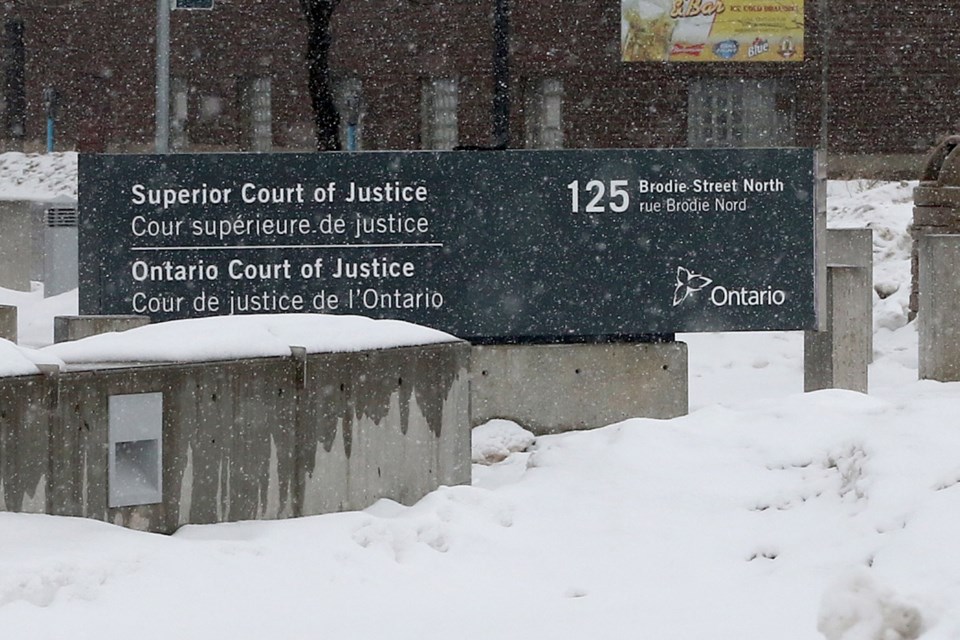THUNDER BAY — A judge of the Superior Court of Justice has stayed drug-trafficking charges against a Toronto-area man because it took too long to bring the case to trial.
This means the case is discontinued with no determination of guilt or innocence.
Thunder Bay Police arrested the man in October 2017 on charges of trafficking in cocaine, conspiring to traffic in cocaine, and conspiring to traffic in methamphetamines.
His case was eventually scheduled to go to trial over 42 months later, in April 2021, but was delayed until April 2022 because his lawyer fell ill.
In a hearing held by video conference last month, the man applied to have the proceedings stayed on the grounds that his right to be tried within a reasonable period of time had been violated.
A ruling made by the Supreme Court of Canada in 2016, known as the Jordan rule, set a 30-month ceiling for the completion of criminal prosecutions. Anything beyond that is presumed to be unreasonable, barring delay attributed to the defence or exceptional circumstances.
In this case, the presumptive ceiling established by the Jordan rule expired in April 2020.
The man's lawyer blamed the delay on the "drip-feed" of pre-trial disclosure by the Crown, which is required by law to provide the defence with all the evidence from police investigations that lead to charges.
The Crown argued that the actions of the defence caused delays totalling over a year, and that COVID-19 reduced court operations which caused a further delay of almost four months.
Mr. Justice W.D. Newton agreed that the pandemic constituted an exceptional circumstance, so that four-month period was deducted from the overall delay.
But he found there had been "persistent, but unfulfilled" requests from the defence for Crown disclosure.
The judge noted that the Crown was informed within months of the man's arrest that he was not waiving his right to a timely trial.
He also said there were tools available to the Crown to speed up pre-trial proceedings in a case that the defence described as one of "moderate complexity," a description he agreed with.
In granting the request for a stay, Judge Newton quoted from the Supreme Court decision that led to the Jordan rule, in which the court emphasized the importance of the Charter of Rights and Freedoms:
Extended delays undermine public confidence in the system. And public confidence is essential to the survival of the system itself, as "a fair and balanced criminal justice system simply cannot exist without the support of the community."
